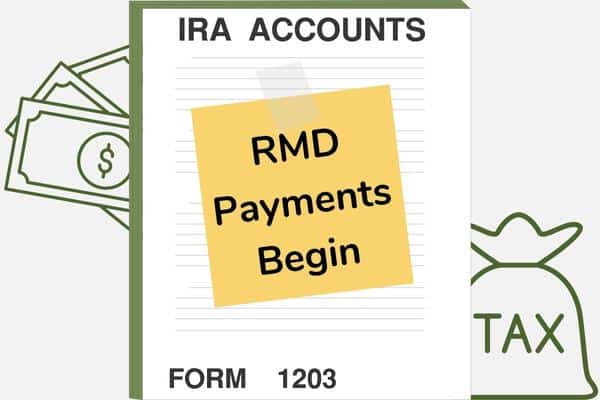There’s a lot to consider if you’re thinking about moving into a retirement community. While they offer an abundance of resources that you can’t replicate at home, retirement communities typically don’t come cheap. One of your top priorities should be deciding whether you can afford a retirement community lifestyle.
It’s important to review both your current and future finances carefully, to properly evaluate the costs of retirement community living, relative to the benefits you might gain.
Upfront Retirement Community Entrance Fees
While some retirement communities simply charge monthly fees, akin to renting an apartment, most also require an entrance fee. These costs vary widely. When totaled up, they can approximate the price of buying a new home.
Refundable Vs. Non-Refundable Fees
Most facilities offer different entrance fee options, based upon the refund feature you select. A zero refund upon death means cheaper entrance fees. Conversely, a higher refund at death results in heftier upfront fees. Most people prefer that some refund is paid to their family or heirs. However, if you don’t have family members or strong preferences regarding a legacy, then you might opt for a cheaper entrance fee with zero refund option, knowing that your entrance fee will be forfeited.
What If You Get Sick?
Most entrance fees are not refundable until death. If these terms are embedded in your contract, you’ll need to ensure that you have other financial resources and/or long-term care insurance to cover potential care costs if you get sick.
What If You Change Your Mind?
Retirement communities typically offer shortened contract timeframes for changing your mind and receiving a refund of your entrance fees. Refund amounts usually decline progressively, reaching zero after a stated period of time. It’s important to be certain about a community before committing, as you might be risking a large sum of money if you change your mind about becoming a resident.
Monthly Fees For Retirement Communities
Whether or not they require an entrance fee, all retirement communities assess monthly fees.. These fees support the facility, resources, and staffing that makes retirement communities attractive. Costs vary, but are typically several thousand dollars per month.
Current Expenses Vs. Future Monthly Costs
It’s important to evaluate if you can support the monthly costs of your chosen retirement community. Be sure to factor in cost savings e.g., no more home maintenance expenses, lower food costs (if meals are provided), utilities (if included), etc.
Medical Tax Deductions
A portion of your monthly fees might qualify as medical expenses for itemized tax deduction purposes. As a reminder, the threshold for your aggregate medical expenses must exceed 10% of your adjusted gross income before a deduction is permitted.
Monthly Fee Increases
Everyone’s monthly expenses typically increase annually, but as a retirement community resident, those increases will no longer be under your control. We recommend reading the fine print to identify how fee increases are calculated, assessing recent annual cost increases, and possibly negotiating an annual percentage cap.
Additional Fees
Make sure you understand what’s included in your monthly retirement community fees, versus what’s extra.
- Care Costs – A prime attraction of retirement communities is continuity of care should you become ill or injured. However, these services incur additional charges. Furthermore, Medicare only covers limited rehabilitation or nursing care. If you don’t have long-term care insurance, such costs become a personal expense. We recommend requesting cost schedules to determine if on-site care resources are within your budget.
- Property Taxes – In some retirement communities, real estate tax obligations are borne by the residents, whereas in others, they’re paid by the facility.
- Incidentals – Common extra costs include transportation, activity and excursion costs, housekeeping, etc.
Living As A Couple In A Retirement Community
If you’re a couple, there are greater financial considerations related to retirement community living.
What If A Spouse Becomes Ill?
If one spouse requires care, these costs will add to your monthly fees. While there might be some fee adjustment if services are needed outside of your personal residence, it’s typically a modest saving, certainly far less than half. Make sure your finances can sustain both regular monthly expenses plus potential care costs for both partners.
What If A Spouse Dies?
Your entrance fee might only be refundable after the second spouse’s death. Survivorship income and asset availability are therefore essential considerations, to ensure that a surviving spouse has sufficient financial resources to remain a resident.
What If You’re Not Married?
Most retirement community contracts are written assuming dual occupants are married, but that’s not always the case. Living with your partner in a retirement community is possible, but requires additional planning and contract negotiations to determine each individual’s share of the entrance fee and monthly fees, plus what happens when the first partner dies.
What If You Have a Blended Family?
If you and your partner each have children, your legacy plans might differ for your respective children. Special planning is required in your estate documents and retirement community ownership contract in order to ensure that your wishes are honored.
The above points are not intended to be comprehensive. Choosing a retirement community is a uniquely individual decision, and everyone’s finances are different, particularly as you contemplate a move to a retirement community. SageVest Wealth Management recommends updating your long-term financial planning projections to explore your financial security under varying scenarios, before committing to a retirement community. We also firmly recommend exploring a specimen contract with your attorney.
Please contact us if you’re thinking about retirement community living and are contemplating your financial ability to make such a move.




